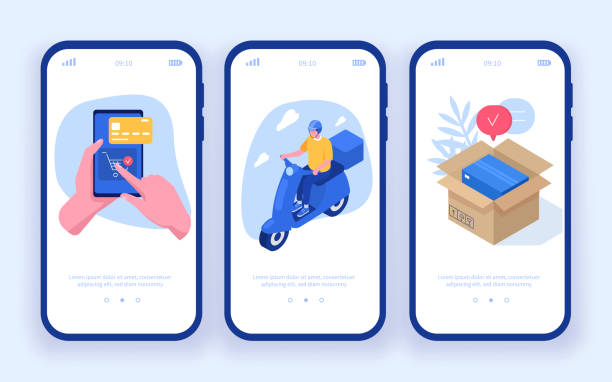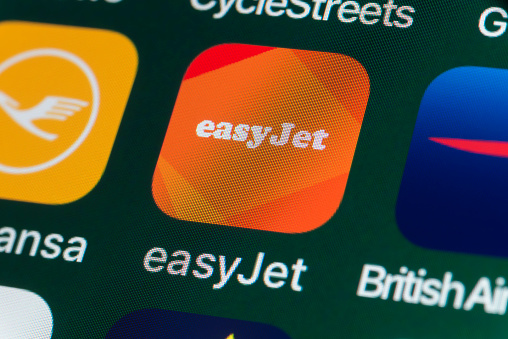
We use our mobile phones on a day to day basis. Mobile apps are always a key when it comes to online shopping, travelling etc. Are you seeking an amazing app idea from an entrepreneur that would be beneficial for your business? Then this blog is for you.
The Demand for Mobile Functions
Why has designing a mobile function become so standard? How mobile apps have transformed customer manners, anticipations and even workplace methods?
Pre – Result
Mobile app elements, the apps demand, everyday errors to avoid at the creativity and pre-result stage, how to select between in-house and mechanism consequence, tech stack options and system, selecting a mobile app development firm, prices to anticipate.
Evolution
Standard outcome procedures, errors to bypass during the growth cycle, the expansion steps.
Post – Result
Maintaining your app operating, supervision and prices, mobile app upgrade, manufacturing, errors to bypass after your app has been established.
Mobile App Demand
We are proceeding to begin with some elements so just skip ahead if you’re more evolved but make sure you don’t miss the standard errors section. And there is still an abundance of impressive statistics and details on the evolution of mobile apps, the demand for them and just how much they now interpenetrate our lives as customers, stakeholders and experts.
Mobile App Definition
A mobile app is a software function developed especially for usage on smartphones and tablets. These appliances run on diverse operating systems (OS) to laptop and desktop computers so mobile apps are developed to run on the Android and iOS (iPhone) working systems.

Mobile App Managing Connections – IOS And Android
Android was the most standard mobile OS in 2021, with approximately 72% of the demand, heeded by iOS with 27.47. The demand has reduced over the past decade exiting only 2 prevalent players, facilitating things for mobile creators and those behind mobile app schemes.

Why Should You Create a Mobile Function?
Mobile apps have had a huge influence in changing customer behaviour patterns, business models, and strategies across regions and enterprises over the past decade. We’ve become so habituated to utilising them for everything from unlocking the smart lock on the office door, dating, booking a dog walker, ordering food, shopping, ingesting media to checking in for a flight, just to name a few This might make you think about the fact that you might want to build your own app, as this can be very beneficial for your business.

The Android Instagram app was embarked in April 2012 with Tinder emerging the same year. Uber was established around the same time, in 2011. Food delivery apps, including Deliveroo, were formed to emerge around the same time. This has made people think about the opportunity for them to learn how to make their own app, as people are coming up with ideas on a day to day basis.
Within just a few short years we as a nation have evolved in being so habituated to operating apps, that we find it bizarre when a company or service doesn’t have one. People sometimes don’t understand why companies don’t build their own apps, as it is a much more rapid way for your company to get noticed. As of 2021:
- As a nation, we spend 90% of the time we spend collaborating with our mobile phones in apps
- Customers spend 2 hours a day in apps
- That’s 30% more additional time than we expended in apps back in 2019
The victory of mobile apps is a mixture of the fact that mobile phones, that live on are eternally within distance, and that they deliver a quick, suitable way to get things done.
The new structure was also armed to develop completely new enterprise models and methods of accomplishing things. What percentage of the class of 2040 will only live because their parents met on Tinder or another dating app? Within the next decade, what are the probabilities real-time adaptation apps will have all but completely broken down language obstacles in professional and professional contact, opening up a whole new world of collaboration and complicity?
Within another 10 years, the companies or procedures that don’t have a mobile app will be the oddities rather than the rule. And we’ll almost definitely have a new era of hugely useful, quickly growing app-based companies none of us has heard of yet. The rate of evolution in the demand of the mobile app is reaping up not stalling down. Some people may want to turn their app idea into a small business app builder (maker), as this might get you recognised for the amazing idea that you’ve come up with.
The Company Box for Mobile Apps
Not all mobile apps are created because the purpose is to instantly degrade them as an app-based company. Apps are also designed as their usage will gain abilities and develop a return on asset that way. Custom mobile app development could be a route to go down when it comes to setting up your own business, as this can get your business soaring.
For instance, we’ve already noted airline apps that include mobile check-in and boarding cards. Their approval has decreased the quantity of time needed to check flight passengers in, lowering staff expenses. They are furthermore more suitable for most passengers than including to print and carry a paper document, enabling enhanced customer happiness.

The Pre-Progress Chapter of Your Mobile App
Before you even start creating a mobile operation there is a ton to do. The foremost step is to decide if you really should form it at all. If the solution is still favourable, you have another prolonged checklist of concerns and judgments to make before expansion begins.
Deciding Your Tech Bundle
The more refined elements of all the technologies and devices that will be utilised in your mobile app and its result (its tech stack) will likely be determined by your expansion team. But you have some big picture important judgments to take on tech before that moment.
Native or Hybrid
Mobile apps fall into 2 primary technology classes:
- Native apps
- Hybrid apps
Native apps are traditionally created for an individual working method, Android or iOS. In the case of aboriginal iOS apps, they are also created for a special hardware setup(s), iPhones. This implies that they can instantly approach and make usage of the mobile device’s processor and other elements of the hardware, such as the microphone and camera.
By distinction, hybrid apps are created to be consistent with mobile appliances that operate on both Android and iOS with the tiniest alterations to the code, which is usually 90% similar for both versions. The drawback to that cross-platform unity is hybrid mobile apps can’t use the appliance’s processor so rather count on an internet portal.
Creating native apps, especially if neither Android nor IOS users are to be missed, also takes more time and is more costly. The pros and cons of both options need to be regarded critically as part of a greater image.
Native App
Pro’s
- Excellent performance
- Can drum into the full process of the mobile appliance
Con’s
- More increased expansion and upkeep expenses
- Purchasers have to commonly load amends to retain execution
Hybrid App
Pro’s
- Quicker, low-cost outcome
- Interpretation distinctions can be hardly apparent if the app applies a low input and clarification obligation
Con’s
- Execution can be insufficient on elder appliances
- Not appropriate for all apps (specifically those affecting more solemn gears)
Creating a hybrid app could be your best option if:
- You want to foremost test the app and create aboriginal performances at a later date if the asset is established economically feasible.
- You have a close-knit limit.
- Your funding is restricted.
- Your app will be utilised by a moderately remote number of people (ie. app for interior use in an association or for the customers of a small company).

Conclusion
Overall, having a mobile app can really help benefit your business, as the majority of individuals use their mobile phones pretty much every day. Smarty Studio can help with developing your own app and are always here for support, such as custom made development. Some businesses don’t think that it is necessary to have an app, but it is something to think about when you want to start up your own company.

